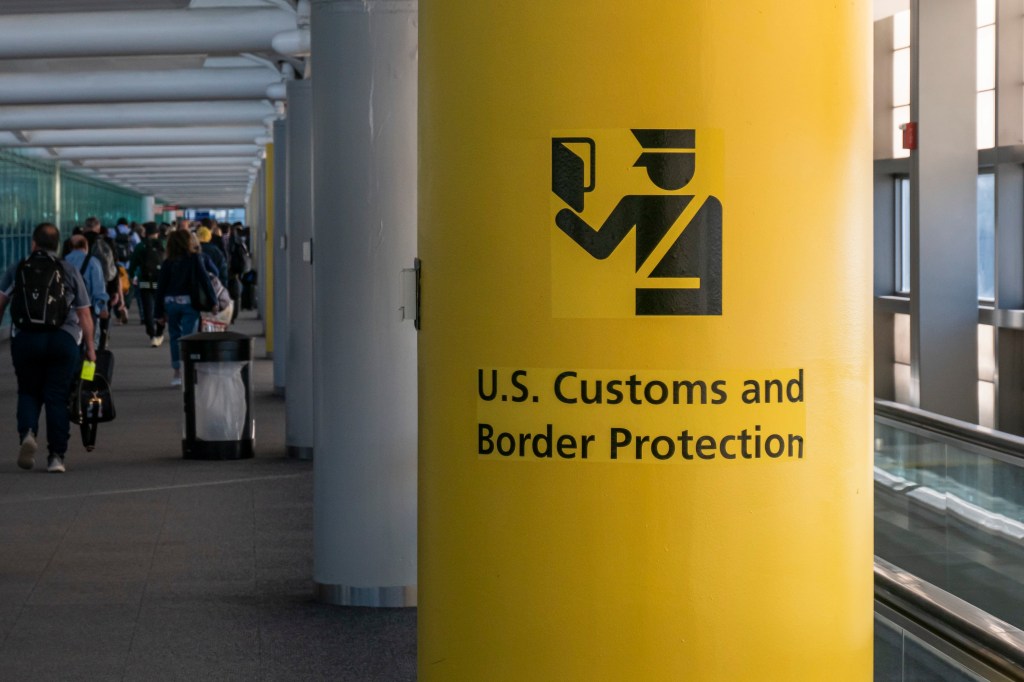U.S. Customs and Border Protection (CBP) is making changes to its air cargo inspection program to better address potential aviation security threats in response to evolving terrorist tactics.
In a ruling published in the Federal Register on Friday, CBP established it is expanding the data that air carriers, air freight forwarders and other logistics providers must send the agency before cargo is loaded onto a U.S.-bound aircraft.
This data is analyzed as part of a joint targeting operation between CBP and the Transportation Security Administration (TSA) known as the Air Cargo Advance Screening (ACAS) program.
ACAS is designed to address specific threat information in real time and identify high-risk cargo for further inspection before it ever boards a plane—all aimed at deterring and disrupting risks faced by aircraft flying to the U.S.
New mandatory data elements required to be shared include the consignee’s email and phone number, the shipment packing and/or scheduled pickup location, and details about the “ship to” party. For the last data element, the filer would have to include the party name and address of the first party scheduled to physically receive a shipment after the shipment is released from CBP custody.
The agencies are also collecting newer data on a conditional and optional basis.
Conditional data elements, which are only required in certain circumstances, now include shipper contact information, customer account details, shipping costs and device IP/MAC addresses used in transactions. For shipments where the shipper is not a “verified known consignor,” data such as biographic information and product listing links may be required.
E-commerce packages would be impacted by the change, as filers would have to highlight the device IP/MAC addresses alongside either the URL or stock keeping unit (SKU) to identify the product.
“The large volume of shipments conducted as a result of e-commerce transactions, the potential for the obfuscation of the true contents of a shipment, and the relative anonymity afforded to participants in e-commerce transactions presents a special risk to air cargo security,” the ruling said.
CBP noted that many e-commerce platforms facilitate transactions between purchasers and third-party vendors that independently package and ship merchandise. With there often being such separation between the e-commerce platform hosting the product and the third-party sellers, it can be difficult for the marketplace to establish clear oversight and enforcement.
“This anonymity and the relative ease of establishing a business relationship with an e-commerce platform, among other factors, can make e-commerce platforms effective distribution tools for manufacturers of counterfeit consumer products and other illicit items,” CBP says.
With the updates, U.S. customs could more effectively identify the item being imported into the U.S., the marketplace that facilitated the creation of the shipment and the location of the device that purchased the product.
CBP also listed new optional, but recommended, elements such as the shipment’s origin, declared cargo value, harmonized tariff schedule (HTS) code, transaction type (i.e. B2C vs. B2B) and importer of record number.
These changes may require freight forwarders, software vendors and other logistics providers to update their data collection and transmission processes, ensure compliance with new records retention rules and coordinate closely with partners to avoid shipment delays or enforcement actions.
The net cost of the new ruling to the wider industry will range from $877 million to $1.04 billion, CBP said.
Global air cargo players, including Amazon, UPS, FedEx and DHL, alongside top freight forwarders, will all incur some portion of the added expenses.
“The cost to adjust IT systems will vary significantly depending on the trade member,” said the ruling. “Most affected trade members have existing systems for completing ACAS filings and will not need to develop entirely new systems, and instead, would adjust their existing systems to meet the new requirements of the enhanced ACAS filing.”
CBP will allow the impacted parties 12 months to phase in any changes before enforcing the new ruling, “so long as inbound air carriers and other eligible ACAS filers are making significant progress toward compliance and are making a good faith effort to comply with the rule to the extent of their current ability,” the ruling said.
CBP is also accepting comments from industry for 60 days following the effective date.
The agencies collaborated to establish the program in 2018, but agreed to expand it after separate incidents in which incendiary devices caused fires at DHL’s air cargo hubs in Birmingham, England and Leipzig, Germany in July 2024.
Those devices were suspected to be part of a covert Russian operation aimed to start fires aboard cargo or passenger aircraft flying to the U.S. and Canada.
Monetary penalties for non-compliance, which will apply to both the inbound air carrier and any other eligible party that elects to be the ACAS filer, are $5,000 for each violation up to a maximum of $100,000 per aircraft arrival.
CBP and TSA may assess additional administrative penalties.









